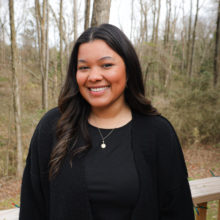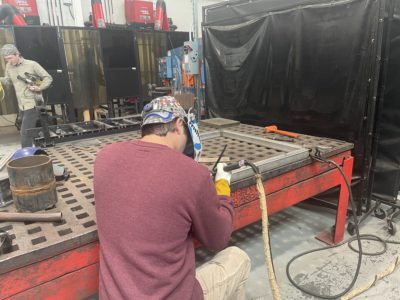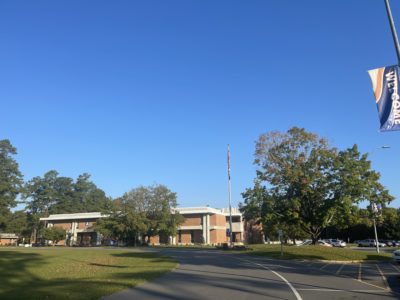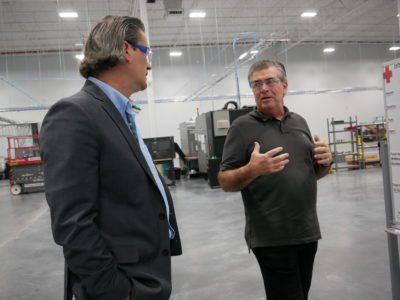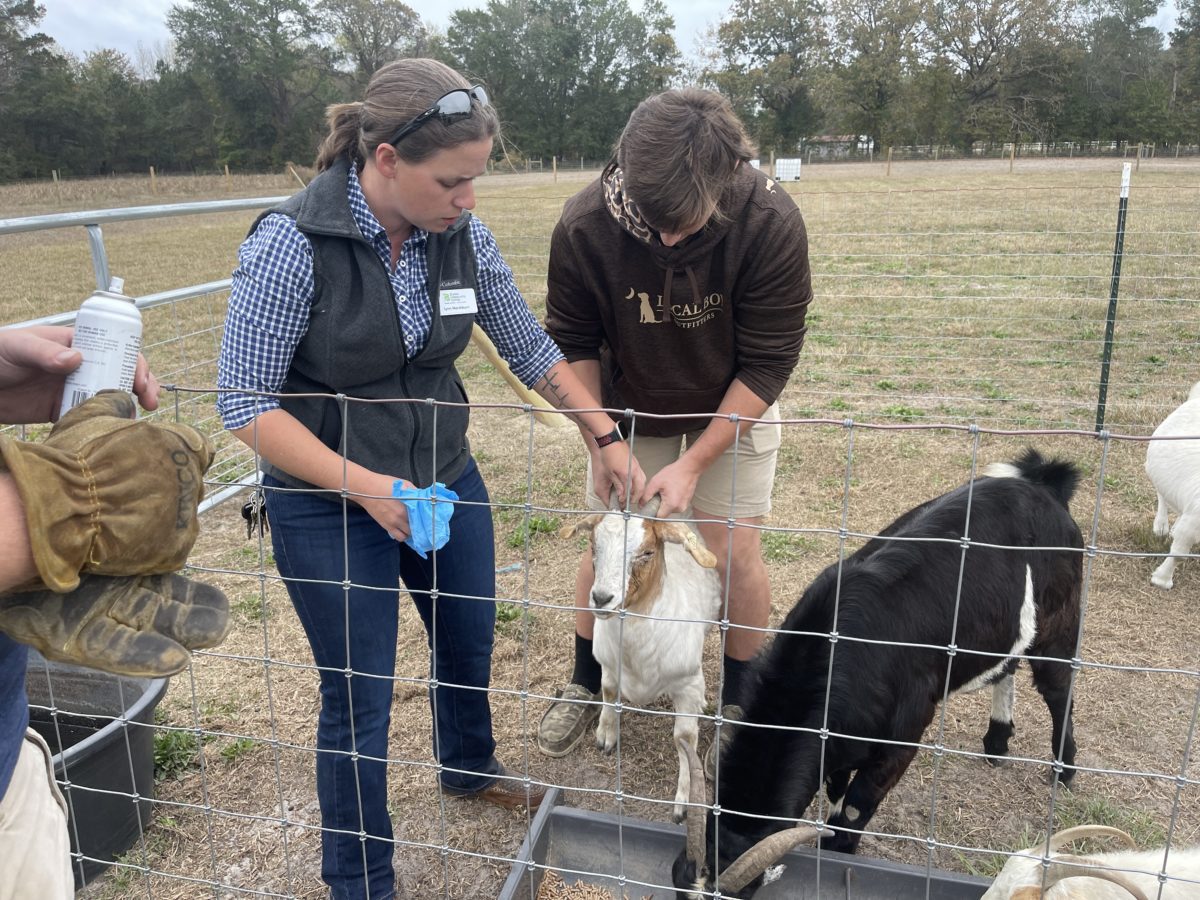

|
|
Bladen County is considered the “mother county” of North Carolina because 55 of the state’s 100 counties once belonged to Bladen County. Today, as one of the smaller community colleges in the state, Bladen Community College (BCC) is learning the value of being authentic to its community.
From responding to business needs to preparing students to enter the workforce, Bladen Community College has found that its success lies in its community.
According to a recent economic impact report, BCC has an annual economic impact of $31.9 million in its service area.
Leaning on community support
Bladen County is overwhelmingly rural — 91.2% according to N.C. Department of Commerce. For the community college, this means that local businesses and industry partners act as the college’s backbone and main support.
Brian Campbell is the president and CEO of Campbell Oil Company, a “fourth generation” business founded and operating in Bladen County. Campbell serves on the BCC Board of Trustees, and he said supporting the community college goes hand-in-hand with supporting the county.
“I wholeheartedly believe the success of this county is going to go through the doors at the community college, and it’s gonna go through the doors of the public schools,” Campbell said.
Campbell said it’s important to build a “vibrant community” that urges students to stay in the county.
BCC is doing this by providing on-campus events for its students, but also for the community. This includes back-to-school events and holiday celebrations, in addition to student-focused events, like FAFSA and enrollment days.
Dr. Amanda Lee, president of BCC, said it’s these business partnerships that allow the college to thrive. Due to the county’s small population, Lee and Campbell emphasize the need for integrating services and programs, rather than creating fragmented systems.
Campbell said understanding what makes Bladen unique is how the community will succeed. He said the county shouldn’t aim to be like larger cities in North Carolina, but instead, emphasize what makes the county special.
“We’re really good at being us,” Lee added.
Preparing students for careers in Bladen County
According to the U.S. Department of Agriculture, Bladen County is one of the top agricultural producers in the state, particularly of livestock, dairy, and poultry. And with more than 180,000 acres of farmland in the county, BCC is growing its agriculture department on campus.


Lynn Marshburn is the agribusiness coordinator at BCC. Since she started leading the agriculture program, Marshburn has been working to expand learning opportunities for her students.
According to a recent economic impact study, the agriculture, forestry, fishing & hunting sector is the second largest employer in the county, making up 8.3% of the county’s employment. Marshburn’s coursework trains students how to care for various livestock, different methods for growing crops, and more – all in hopes of preparing students for jobs in the county.
Preparing students for careers in Bladen County is happening in other programs, too. According to the economic impact study, health care is the second largest employer in North Carolina. In Bladen County, filling those jobs starts at the community college.
Bladen is the fourth largest county by area in North Carolina. This means that even in normal times, EMS care is stretched throughout the county – and COVID-19 only exacerbated this issue. Brian Hehl, director of the emergency management services program at BCC, said expanding EMS coverage in the county starts by increasing the accessibility of EMS courses at the college.
“Any EMS education that we have is the most easily accessible way to get an education here,” Hehl said. “We’re living to that option to where if you want a class, we’ll find a way to get you a class.”


In addition to expanding course offerings, Hehl said expanding EMS coverage includes maintaining relationships with the local community and EMS officials.
Nursing students at Bladen Community College also completed a community-based project last fall. The project required students to navigate the health care system in the county by putting themselves in local residents’ shoes.
The project, designed by nursing instructor Marcia deAndrade, pushed students to understand the disparities that they may witness with patients in the county.
Keeping students front and center
The college is moving to what is commonly known as the “one college” approach. This model allows students who are seeking services at the college to have the same experience from beginning to end, regardless of what program they are pursuing. From degree-seeking students to students seeking workforce credentials, this model is meant to make the enrollment process at the college more seamless and less stressful for students.
While implementing this model, BCC is instituting other changes across campus, including revamping its tutoring services and an introductory course all BCC college transfer students take. This includes a learning styles assessment.
Felisia Williams is the coordinator of a required college transfer success course at the college. She said that allowing students to know their learning styles equips them in the classroom at BCC, but also benefits students who transfer to four-year institutions.
“Academically you’re maturing each and every day,” Williams said. “Trying to get them to understand their learning styles, their learning preferences, and with that knowledge, then they can take that into the classroom.”
Keeping students centered at the college also involves making academics more accessible. By expanding its course offerings to weekends and evenings and making preparations to host courses in other parts of the county, BCC is learning the value of accommodating students’ needs.
From law enforcement and health care programs to agribusiness and electrical, BCC is trying to serve its community by partnering with local leaders to help train a qualified workforce.
“We’re training people who live here, who love the community, and who serve the community, as well,” Lee said.
